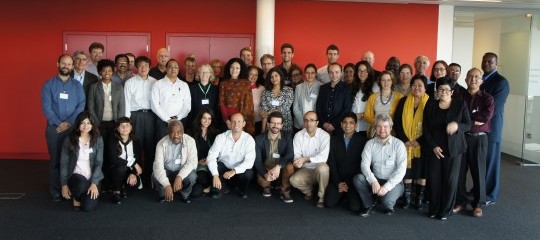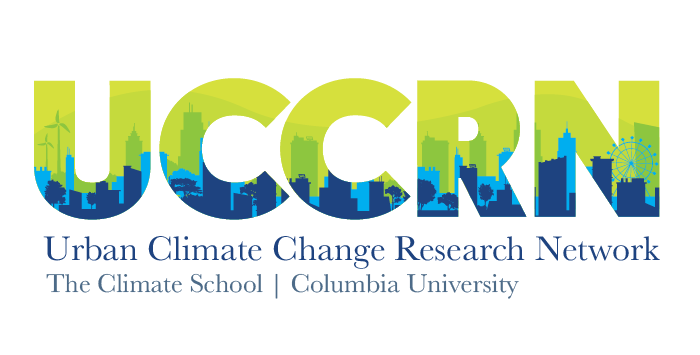As cities lead on climate change, the demand for knowledge grows
To support city-level action, UCCRN was established in May 2007 during the C40 Large Cities Climate Summit held in New York.
Based at Columbia University’s Earth Institute, UCCRN began as an initial group of 100 researchers in 60 cities and has grown into a network of over 1000 researchers across the world.
UCCRN’s mission is to provide essential knowledge to urban decision-makers to enhance climate science-based policymaking.
More than half the world’s population is urban and another two billion people are expected to move into cities by 2050. Global economic activity is concentrated in cities, now accounting for up to 70% of global greenhouse gas emissions. Less attention has been directed at understanding urban climate change challenges – urban heat island effects, coastal flooding, and public health risks. These vulnerabilities are amplified due to large populations and complex interdependent urban systems. Across the world, coastal and inland cities require a state-of-the-knowledge assessment process to ground their unique climate change risks and responses to adaptation and mitigation in science-based policymaking.
Assessment Report on Climate Change and Cities (ARC3). The ARC3 report series represents a collaborative effort with authors from cities in developed and developing countries around the world. The reports are the first-ever global, interdisciplinary, cross-regional, science-based assessment to address climate risks, adaptation, mitigation, and policy mechanisms relevant to cities. The assessment articulates urban climate risk frameworks and climate science for cities and derives policy implications for key urban sectors—water, energy, transportation, sanitation, public health—and the systemic issues of land use and governance.
UCCRN is in the writing and editing stages of the third edition of the assessment (ARC3.3). ARC3.3 will be published as a series of reports in 2022 - 2024 by Cambridge University Press. Each report will focus on a key facet of urban climate change, including nature-based solutions, urban planning and design, data and the role of technology, and climate governance, among others.
To learn more about the ARC3.3 author nomination process, visit the ARC3.3 Author Nomination page.
UCCRN Stakeholders. UCCRN plays a key role in supporting a burgeoning ‘network of networks’ related to climate change and cities through its own research, workshops, and networking events. Key stakeholders with strong synergy are involved in UCCRN’s Assessment Reports on Climate Change and Cities (ARC3). These stakeholders include city practitioners and policymakers, cities, city networks, nation-states, and international development agencies. UCCRN also supports other groups including NGOs, non-profits, private-sector city planning, and engineering firms, and other stakeholders concerned with the long-term development of cities.
UCCRN Researchers. The heart of UCCRN is its world-class researchers, many of whom are leading academics, IPCC authors, and practitioner-scholars. These researchers are experts in their fields, which range across the social and natural science spectrum and are from cities all over the world. UCCRN researchers are often involved with providing climate change information and advice to decision-makers for the cities in which they are based.
UCCRN’s goal is to build a network of 10,000 researchers/experts
Regional Hubs. Regional Hubs have been established in cities around the world to provide more geographically targeted research and support for local researchers and practitioners. The Hubs play leadership roles in actively expanding membership geographically.

